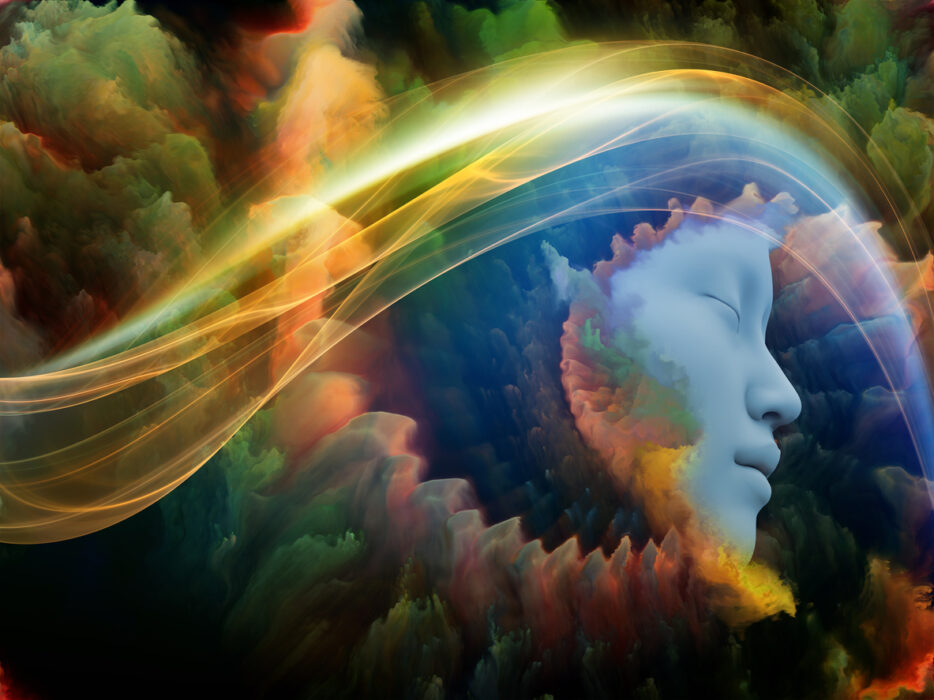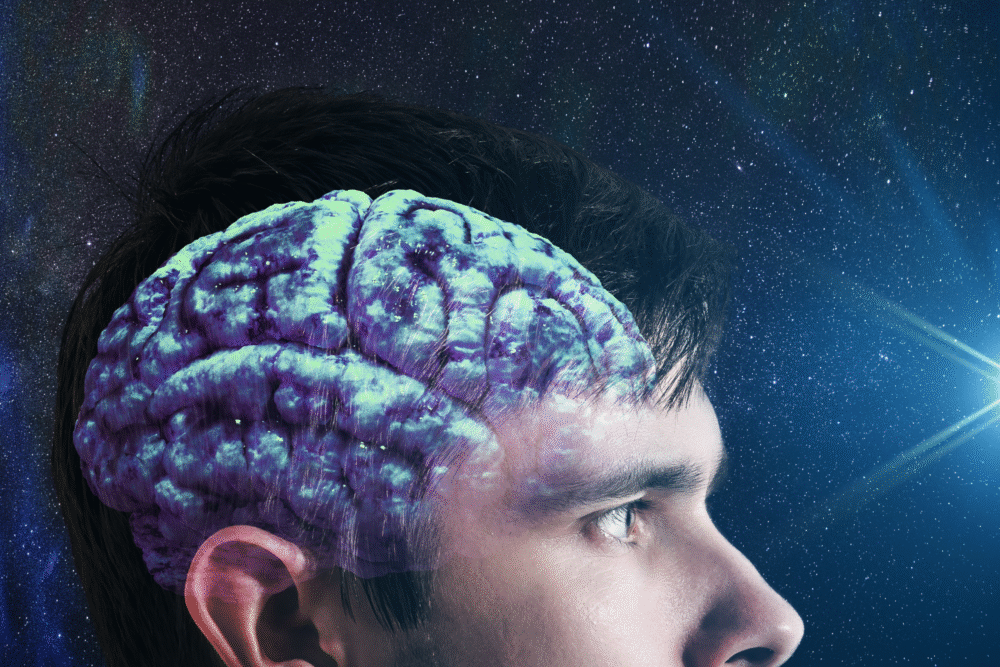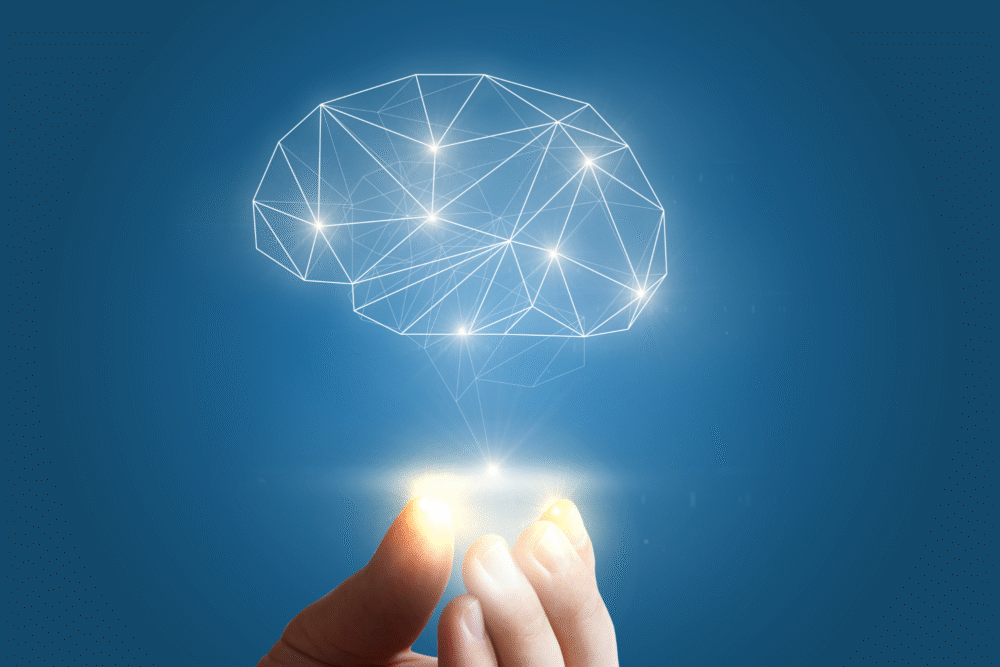What you call “you” might just be an illusion your brain keeps inventing.

You might not be who you think you are—and that’s not just some woo-woo nonsense. The more you start pulling at the thread of what makes you “you,” the weirder things get. You’ve got a name, a personality, a set of memories—but dig a little deeper, and it starts to feel like smoke slipping through your fingers. You make decisions, react to things, form opinions—but who’s actually doing all that? Is there a real “you” in there steering the ship… or are you just a bundle of habits and thoughts on autopilot?
It’s the kind of question that keeps both neuroscientists and monks up at night. And once you start poking at it, it gets harder to go back to life as usual. That sense of a solid, stable self? It might be more fragile—or flat-out fake—than you ever imagined. This isn’t about spiraling into an existential crisis (although… fair warning). It’s about getting curious enough to ask: What if the whole idea of “me” is a mental magic trick? And what happens when you start to see through the illusion?
1. You think you’re a single self—but your brain is more like a committee.

It feels like there’s one “you” in charge—steady, central, unified. But when you pay attention, things get messy fast. One part of you wants to eat the cake, another says don’t, and a third just wants a nap. It’s like a group chat in your head with no moderator. Neuroscientists have actually found that your brain processes different tasks in different areas, and those regions often compete, according to Karen Whalley Hammell PhD at Science Direct. You’re more like a patchwork of impulses, preferences, and shifting priorities than a single, solid entity.
And when you think about it, that actually makes sense. Ever said something and immediately thought, Why did I say that? That’s a clue your internal “self” isn’t as unified as it seems. Buddhism calls this the illusion of self—this mistaken belief that there’s a fixed core behind your thoughts. But the more you look, the more that center disappears. It’s not scary—it’s kind of freeing. You don’t have to be perfectly consistent because you never were in the first place. You’re not a statue. You’re a shifting, talking storm of thoughts.
2. You feel like you’re the one calling the shots—but your brain often decides before you do.

It really seems like you’re in control, right? You weigh options, make choices, follow through. But research shows your brain often makes a decision before you become consciously aware of it, as reported by Dan P. McAdams at NOBA. Like, milliseconds before you think you’ve chosen something, your brain’s already fired the neurons. In experiments, people push a button or pick an option, and scanners light up in predictive patterns before the subject even knows what they’ll do. So who’s actually deciding? Your conscious mind is more like a narrator catching up than a director giving orders. It fills in the story, smooths the edges, and makes it sound like you’ve got this unified decision-maker inside—but the truth is fuzzier.
Buddhism’s been side-eying the idea of free will for centuries. It suggests your thoughts just arise and pass away, without a fixed self making them happen. That doesn’t mean you’re a robot—it means “you” are more of an unfolding process than a puppeteer. And once you stop clinging to the illusion of control, you might actually feel a weird sense of relief. You’re not broken—you’re just human.
3. You think your memories define you—but those memories aren’t nearly as reliable as you think.

You probably believe your past is a stable foundation for your identity. After all, your memories are yours—they happened, right? But the truth is, memory is a slippery thing. Your brain doesn’t store memories like files in a cabinet. It rewrites them every time you recall them, mixing in new information, emotions, and even flat-out false details. And over time, the stories you tell yourself about your past can morph into something more like a highlight reel—or a myth, as stated by Rich Maloney at Quality Mind Global. Studies have shown how easy it is to implant false memories in people, especially when suggestions or cues are introduced. So when you say, “That’s just who I am because of what happened,” you might be building your identity on something that didn’t go down quite like you think.
Buddhism would say that clinging to memory as a self is just another attachment. It’s not that your experiences don’t matter—they totally do. But the idea that your “self” is this tidy stack of accurate memories? That’s more comforting than true. You’re not your past. You’re the person constantly reinterpreting it.
4. You treat your personality like it’s carved in stone—but it’s more like wet clay.

You’ve probably taken a quiz or five that told you what “type” you are—introvert, extrovert, creative, analytical, whatever. It feels good to have a label, like it anchors you. But personality isn’t nearly as fixed as you think. Sure, you’ve got tendencies. But how you act, think, and feel can shift based on your environment, age, mood, or even how much sleep you got. Psychological studies show that people’s personalities evolve over time—sometimes dramatically.
That sarcastic, guarded twenty-something might turn into a surprisingly tender 50-year-old. You’re not locked into a blueprint. You’re changing all the time, and most of it happens gradually, without you realizing it. Buddhism would say the self is like a flame—always burning, never the same from moment to moment. So when you tell yourself, That’s just how I am, maybe pause. Are you sure? Or is that just a story you’ve repeated until it stuck? The freedom is in the flexibility. You don’t have to reinvent yourself—but you don’t have to stay boxed in, either. You’re more moldable than you’ve been led to believe.
5. You assume there’s a “you” watching your thoughts—but that watcher might be just another thought.

You probably feel like there’s a little observer inside your head—the one who’s “watching” your mind do its thing. Like you’re sitting in the control room, seeing your thoughts and emotions roll by on a screen. But when you try to locate that inner observer, it’s slippery. You can describe it, feel it, sense it—but can you actually find it? Is there a solid thing watching, or is “the watcher” just another layer of thought pretending to be above it all?
Meditation teachers love pointing this out. When you sit quietly and watch your thoughts, the idea of a “you” watching quickly starts to unravel. Awareness is happening—but not because there’s a tiny self behind the curtain pulling the levers. It’s awareness, being aware. That’s it. The idea that “you” are separate from your thoughts is comforting, but maybe not accurate. Buddhism calls this anatta—non-self. And when you start playing with that idea, something weirdly peaceful happens. You stop gripping so hard. You stop needing to control every thought. Because maybe there’s no inner boss to satisfy in the first place.
6. You believe your body and your self are the same—but that line gets blurry fast.

At first glance, it feels obvious: you are your body. You move through the world in it, you feel pain in it, you recognize yourself in the mirror. But zoom in, and things get weird. Your body is constantly changing—cells dying and regenerating, skin shedding, gut bacteria shifting, hormones rising and falling. The “you” from ten years ago doesn’t share a single cell with the body you have today. So which body is the real you? And what about people who lose a limb or experience paralysis—are they suddenly less themselves? The more you think about it, the harder it is to pin “you” to any one part of your physical form.
Buddhists have long said the body is just one of five ever-shifting “heaps” or components—not a fixed identity. And science agrees: identity isn’t located in your arms, legs, or even brain. It’s a process, not a place. So while your body’s part of your experience, it might not be your entire self. You’re not just skin and bone. You’re the awareness of having skin and bone—and that’s a big difference.
7. You act like your thoughts define you—but they’re more like weather passing through.

You’ve probably had a random, dark, or weird thought and immediately thought, Ugh, what’s wrong with me? But here’s the thing—thoughts aren’t personal. They arise, they fade, and most of them come from who-knows-where. Your brain generates them like the sky makes clouds. That doesn’t mean they’re meaningless, but it does mean you don’t have to identify with every single one. Just because you think something doesn’t mean you are that thing. Buddhism compares thoughts to passing phenomena—like sound or sensation. They come and go.
Science backs this up with studies showing how thoughts are often reactive, automatic, and shaped by unconscious cues. So when you start observing your thoughts instead of clinging to them, your entire relationship with your mind changes. You stop panicking over every weird mental blip. You stop thinking your anxiety or anger means you’re a “bad” person. You’re just experiencing weather patterns in the brain. You don’t need to control the sky—you just need to recognize you’re not the clouds. You’re the space they pass through.
8. You think the self is inside your head—but it might be scattered throughout your environment.

It’s tempting to imagine your “self” lives somewhere behind your forehead, tucked inside your brain. But some cognitive scientists argue that your identity isn’t just internal—it’s extended. Your smartphone, your journals, your routines, your relationships—all of these form part of the feedback loop that shapes how you think and who you believe you are. In this view, you’re not a closed system. You’re more like a network. Change your environment, and your sense of self changes too. Ever moved cities or changed careers and suddenly felt like a totally different person? That’s not a fluke. It’s proof that your “self” is porous.
Buddhism doesn’t draw a hard line between self and world either. It suggests that what we think of as “me” is deeply interdependent on everything around us. The idea that your identity is contained entirely in your skull is comforting, but maybe incomplete. You’re not just a brain-in-a-vat. You’re a full-body, social, sensory being in constant exchange with the world. That’s weirdly humbling—and also kind of amazing.
9. You assume your inner voice is your true self—but sometimes it’s just recycled noise.

That little narrator in your head? The one running commentary on your day, your choices, your outfit, your lunch? You might think that’s the real you talking. But half the time, it’s just a mashup of things you’ve heard from parents, teachers, exes, commercials, social media, and childhood bullies. Your inner voice is often a collage—not a truth-teller. Buddhism would call that voice just another mental formation. It’s not sacred, and it’s definitely not always helpful.
Sometimes it’s straight-up mean. And if you start listening closely, you might realize how much of it is outdated, critical, or just plain false. Science shows the brain is great at forming loops—repeating the same thoughts over and over without checking if they’re true. When you start questioning your inner monologue instead of bowing to it, your whole self-image shifts. You realize you don’t have to believe everything you think. You can hear your inner voice and still choose a different response. That voice isn’t the boss—it’s just the noisiest passenger. And you’re allowed to turn the volume way down.
10. You’re convinced there’s a constant “you”—but your sense of self changes all day long.

You wake up groggy and grumpy. By noon, you feel focused and driven. That night, you’re nostalgic and tender. Which one is the “real” you? The truth is, your sense of self shifts constantly. Mood, energy, hunger, and even the people you’re around can drastically alter how you see yourself. You might feel totally secure one day and like a total fraud the next. It’s not that your identity is fake—it’s that it’s fluid. And that fluidity doesn’t mean you’re unstable—it means you’re human. Buddhism gets this. It teaches that the self is not one thing, but an ongoing process of arising and dissolving states. Neuroscience agrees—your default mode network (the brain network associated with self-reflection) changes depending on your state of mind and external circumstances.
So if you feel like you’re “not yourself” sometimes, you’re actually just experiencing one version of your very real, very shifting self. There’s no one fixed “you” hiding behind the curtain. Just layers of experience, changing from moment to moment. And weirdly, that realization can feel grounding, not disorienting.
11. You think losing your ego is scary—but it might actually be your way out of suffering.

Ego gets a bad rap, but it also gets misunderstood. It’s not just arrogance—it’s the whole structure of identity you cling to. Your story, your image, your beliefs about who you are. And while some ego is necessary to function in the world, most suffering comes from taking it too seriously. That need to be right, to be liked, to stay consistent—it’s exhausting. Buddhism teaches that when you loosen your grip on the ego, you don’t become empty. You become free.
You stop treating every insult like a threat, every change like a crisis. Neuroscience backs this up: meditation studies show that when the ego quiets down, people experience more peace, compassion, and connection. It’s not about erasing yourself. It’s about realizing you’re not the tight little identity you’re trying to protect all the time. You’re something much bigger and more flexible. Letting go of ego isn’t giving up who you are—it’s releasing the parts of you that keep you anxious, defensive, and stuck. And once that happens? The world gets a lot lighter.
12. You assume you have a self—but science and spirituality both keep suggesting otherwise.

For centuries, we’ve clung to the idea of a self because it feels necessary. It gives us stability, purpose, and a sense of continuity. But both modern neuroscience and ancient Buddhist teachings keep pointing to the same weird conclusion: the self might not actually exist in the way we think. Science shows no single spot in the brain where the self “lives.” It’s a network, not a thing. Buddhism says the self is a process, not a possession. In both cases, what we call “I” is just a temporary combination of thoughts, memories, sensations, and perceptions—all constantly changing.
That doesn’t mean you’re nobody. It means you’re not the little character in your head you’ve been trained to protect and define. And while that realization might sound existential at first, it’s also deeply liberating. If the self is flexible, then you’re not trapped. You’re not broken. You’re just unfolding, moment by moment. And once you stop gripping the idea of a fixed identity, you might find something even more meaningful: freedom, clarity, and peace in the not-knowing.
